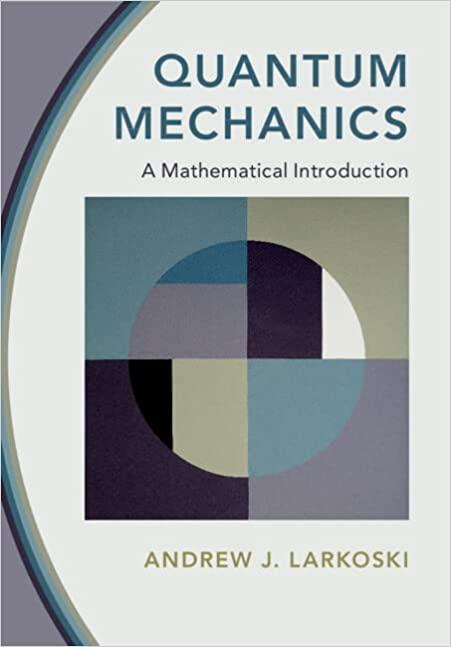Coherent states are potentially an interesting basis to consider in which to express states on the Hilbert
Question:
Coherent states are potentially an interesting basis to consider in which to express states on the Hilbert space. Are they a good basis, satisfying qualities that we desire of a basis on the Hilbert space?
(a) Consider two coherent states specified by eigenvalues of the lowering operator \(\hat{a}, \lambda\) and \(\eta\). Call these coherent states \(\left|\psi_{\lambda}\rightangle\) and \(\left|\psi_{\eta}\rightangle\), respectively. What is their inner product, \(\left\langle\psi_{\lambda} \mid \psi_{\eta}\rightangle\) ? Do there exist values of \(\lambda\) and \(\eta\) for which the coherent states are orthogonal?
(b) Are coherent states complete? Completeness would require that the sum over the outer product of all coherent states is the identity operator:
\begin{equation}
\mathbb{I}=\int_{-\infty}^{\infty}\int_{-\infty}^{\infty}d\operatorname{Re}(\lambda)\,d\operatorname{Im}(\lambda)\left|\psi_{\lambda}\rightangle\left\langle\psi_{\lambda}\right|
\tag{6.119}
\end{equation}
Summing over all coherent states means that we sum over all possible states with distinct real and imaginary parts of the eigenvalue \(\lambda\) of the annihilation operator. Is this equality true, assuming the completeness of the energy eigenstates of the harmonic oscillator?
Express the coherent state \(\left|\psi_{\lambda}\rightangle\) in terms of the energy eigenstates of the harmonic oscillator.
Step by Step Answer:

Quantum Mechanics A Mathematical Introduction
ISBN: 9781009100502
1st Edition
Authors: Andrew J. Larkoski





